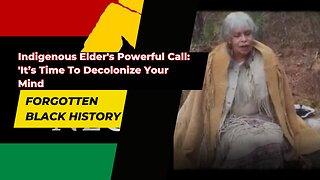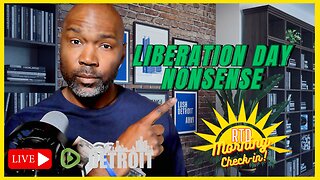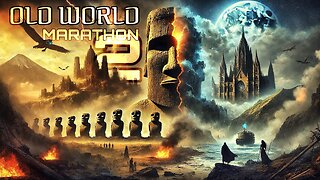Premium Only Content

RAMÓN DUREM (1915-1963)
This video is brought to you by, Fiverr: https://go.fiverr.com/visit/?bta=500952&brand=fiverrhybrid
Fiverr Learn: https://go.fiverr.com/visit/?bta=500952&brand=fiverrlearn
Fiverr Business: https://go.fiverr.com/visit/?bta=500952&brand=fb
Become a Fiverr Affiliate: https://go.fiverr.com/visit/?bta=500952&brand=fiverraffiliates
Fiverr Workspace: https://go.fiverr.com/visit/?bta=500952&brand=workspace
Welcome to "Forgotten Black History". On this channel we talk about special places, events and people in Black History, This page serves as an index to the prominent figures featured throughout the Black History society. Black history is the story of African Americans in the United States and elsewhere. We want to celebrate, remind, and pay respect to not only African Americans but Black people of all races and backgrounds. We hope you subscribe to join the family, so we can grow a small community to help people of all races know just how special black people actually are in the world. Thank you for taking the time out to visit our channel. We hope you subscribe, if you hadn't already. We wish you peace and love, and for you to stay safe out there.
#BlackHistory #ForgottenBlackHistory #BlackPeople
Check out our Rumble page for exclusive videos: https://rumble.com/c/c-1788327
Spanish Civil War veteran and militant poet Ramón Durem was born in Seattle, Washington, in 1915 of mixed heritage. Leaving home at fourteen, he briefly served in the U.S. Navy before suffering a leg injury that forced his discharge. He then worked as a laborer until enrolling at the University of California in Berkeley where he joined the Communist Party in 1931. A radical from an early age, it is hardly surprising that Durem volunteered to join the Loyalist cause in Spain.
Durem departed the United States in March 1937 and was wounded in the Brunete Offensive of that year. During his long recuperation at the American hospital in Villa Paz, Durem met and married a Brooklyn nurse named Rebecca Schulman. Durem returned to the front in 1938 and participated in the Ebro Offensive. In October, around the same time Rebecca was having his first child (named Dolores for La Pasionaria) in New York, Ramón marched in Barcelona’s farewell parade. He was expatriated in December.
The Durems moved to Los Angeles and had two more daughters while Ramón became an active union organizer. Durem left the Communist Party after World War II when, as he later wrote, he “discovered that even the white radicals were not interested in a radical solution to the Negro Question.” He divorced Rebecca, married an African American woman, and moved to Mexico. It was during this period that Durem wrote the poetry for which he is best remembered today. Durem spent the last year of his life in Los Angeles and died of cancer in December 1963.
Writing as “Ray Durem,” his poetry’s strident tone attracted the attention of prominent black nationalist Robert Williams and the prolific African American writer Langston Hughes. Published in several newspapers, literary journals, and poetry anthologies, he is known especially for the volume Take No Prisoners released posthumously in 1971. Ramón Durem’s work was very important to the Black Power movement, serving as a both a political compass and cultural inspiration.
-
 13:47
13:47
Forgotten Black History
3 months agoIndigenous Elder's Powerful Call 'It’s Time To Decolonize Your Mind
1551 -
 LIVE
LIVE
LFA TV
13 hours agoLFA TV - ALL DAY LIVE STREAM 4/2/25
4,219 watching -
 LIVE
LIVE
Y Combinator
3 hours agoY Combinator Little Tech Competition Summit - Washington DC
400 watching -
 DVR
DVR
Scammer Payback
1 hour agoCalling Scammers Live
9.78K -
 LIVE
LIVE
Grant Stinchfield
41 minutes agoA Third Term for Trump? There is a path, but it Would be a Long Shot! Here's Why...
128 watching -
 1:01:43
1:01:43
VINCE
4 hours agoWhat REALLY Happened In Wisconsin? | Episode 13 - 04/02/25
247K225 -

Tudor Dixon
1 hour agoMAHA Meets DC with RFK Jr. Advisor Calley Means | The Tudor Dixon Podcast
29 -
 37:57
37:57
Rethinking the Dollar
1 hour agoGOLD Has Been The True LIBERATOR To Date | Morning Check-In
17.9K -
 LIVE
LIVE
MYLUNCHBREAK CHANNEL PAGE
21 hours agoThe Old World Marathon #2
820 watching -
 1:24:17
1:24:17
Caleb Hammer
1 hour agoThe Biggest Losers In Financial Audit History
223